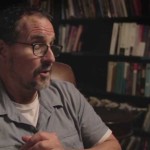We run our website the way we wished the whole internet worked: we provide high quality original content with no ads. We are funded solely by your direct support. Please consider supporting this project.

Loving the Unlovable
Mother Teresa had a prayer she spoke each day that enabled her to minister effectively:
Dearest Lord, may I see you today and every day in the person of your sick, and whilst nursing them, minister unto you. Though you hide yourself behind the unattractive disguise of the irritable, the exacting, the unreasonable, may I still recognize you, and say: “Jesus, my patient, how sweet it is to serve you.”
Mother Teresa understood that when we serve others, we’re serving Jesus. The trouble is that often the people we are called to serve don’t look very much like what we might expect Jesus to look like. This prayer helped keep Mother Teresa oriented to the deeper reality that Jesus expressed when he said, “Truly I tell you, whatever you did for one of the least of these brothers and sisters of mine, you did for me” (Matt 25:40).
To acquire and retain the ability to see through Jesus’ “unattractive disguises” when dealing with challenging people, many find it helpful to whisper the name “Jesus” over and over. This prayer reminds them that they are serving Jesus, regardless of how the other person may be acting toward them. Many also find it helpful to whisper a prayer similar to what Mother Teresa prayed, asking God to show them a glimpse of this presence behind the disguise of a person who is irritable, exacting, or unreasonable.
Admittedly this can be very challenging, especially when we encounter difficult people who trigger feelings of disgust or hostility within, as their disguise goes beyond irritable, exacting, or unreasonable. They are cruel, vindictive, racist, violent, or self-righteous. They may be greedy, petty, or perverted. When we encounter such people, they will likely stir up strong negative emotions.
With people like this, I find it helpful to envision them as the innocent child they once were. People aren’t born cruel, vindictive, racist, violent, or self-righteous. Life in the demonically oppressed world we live in makes people this way. Not that people don’t bear some of responsibility for who they become, for amid all the things that influence us, we have an element of free will. Yet only the omniscient Creator and Judge of the earth can know the extent to which each person is responsible for their actions and the extent to which they are a victim. Our job is to leave all judgment to God (Rom 12:19-20) and to live in love (Eph 5:1-2). To relinquish all judgment and remain constant in this humble, compassionate frame of mind, I find it helpful to envision hard-to-love people as little children. Then I’m better able to see through the unattractive disguises and catch a glimpse of Jesus behind their ugly actions.
Ask God to give you eyes to see the unsurpassable worth he sees in the difficult person you’re interacting with. And remind yourself that, appearances notwithstanding, the person you’re dealing with is for you, at this moment, the single most important person in the world. Nothing matters more than reflecting God’s love to this child of God in the present moment, for the person is one for whom Jesus died.
—Adapted from Present Perfect, pages 126-129
Photo credit: Close to Home via Visual Hunt / CC BY-NC
Category: General
Tags: Imagination, Love, Prayer
Related Reading

Practicing Faith
Faith is the substantiating of things hoped for and the conviction of things not yet seen, based on Hebrews 11:1 as I explained in this post. Practically speaking, this means that you become aware of what you are representing in your imagination as you pray, and that you take care to align it with what…

Why Isn’t God More Clear?
Ever wonder why God isn’t more clear and obvious? Here’s Greg’s take on that question.

When Our Images of God are Faulty
I’m fleshing out the third proclamation of the ReKnew Manifesto, which challenges us to rethink our conception of God. In the previous post I noted that, since our relationship with God is mediated through our mental picture of him, our image completely determines how we feel about God and what our relationship with him will…

Still Forming
Hi Everyone, The Open Theism conference was a huge blessing for us. We’ll be talking more about that in the coming days and giving you information on how to access video of some of the speakers. But today we wanted to share something about spiritual formation and a very old way of reading the Bible…

What God Requires
The reason we were created and what we are called to be is summed up in one word: love. The central defining truth of those who follow Jesus is that in Christ God ascribed unsurpassable worth to us, and thus the central defining mark of those who live in love is that they ascribe the…

Podcast: Dear Greg: My Friend Committed Suicide. Should I Pray for Her Soul?
When does our story end? Greg talks about suicide and praying for the dead. http://traffic.libsyn.com/askgregboyd/Episode_0414.mp3
